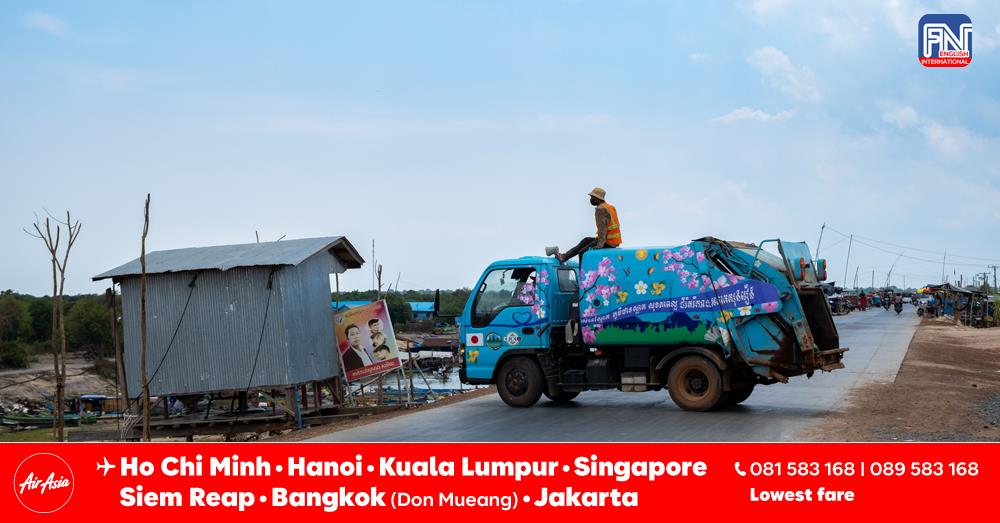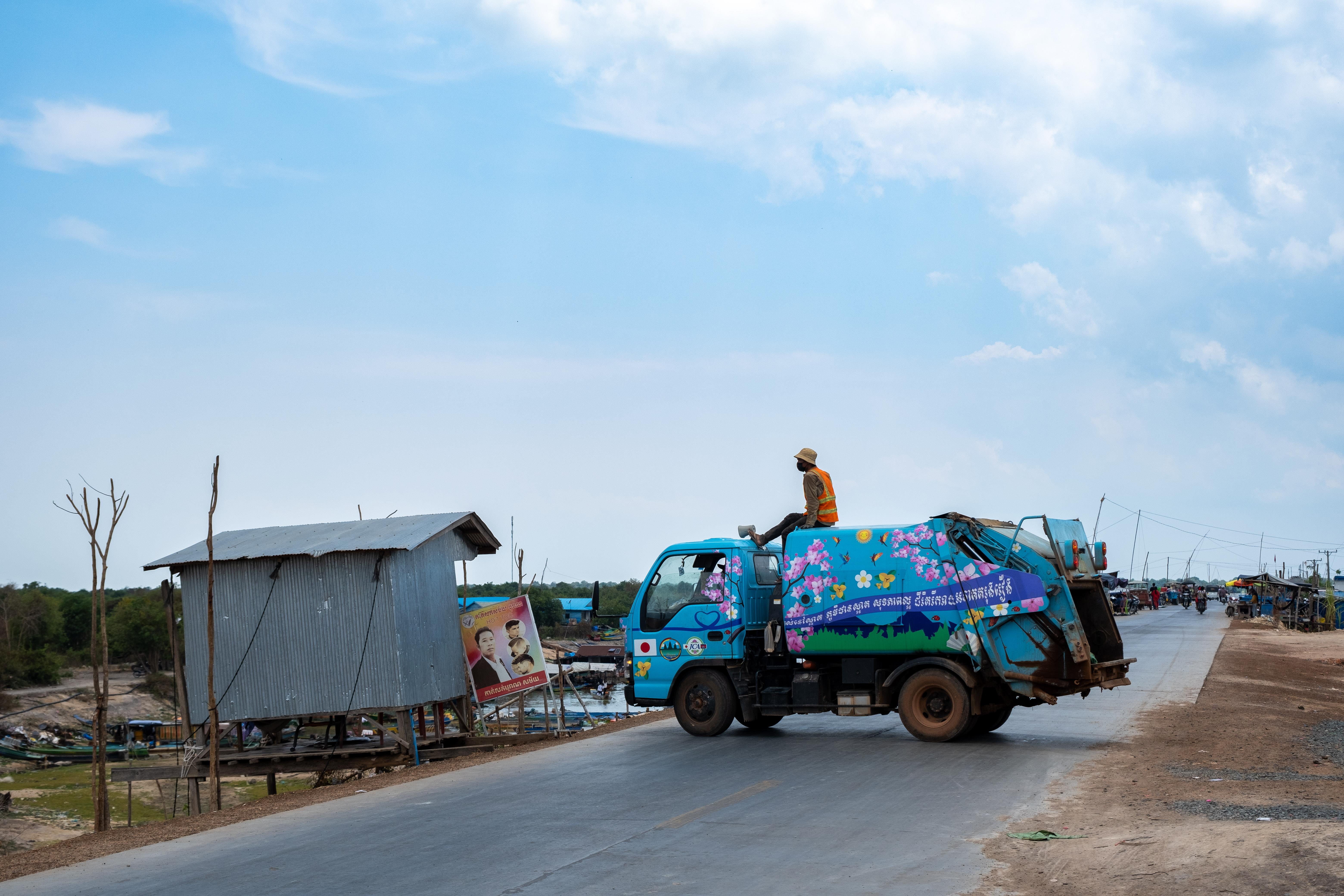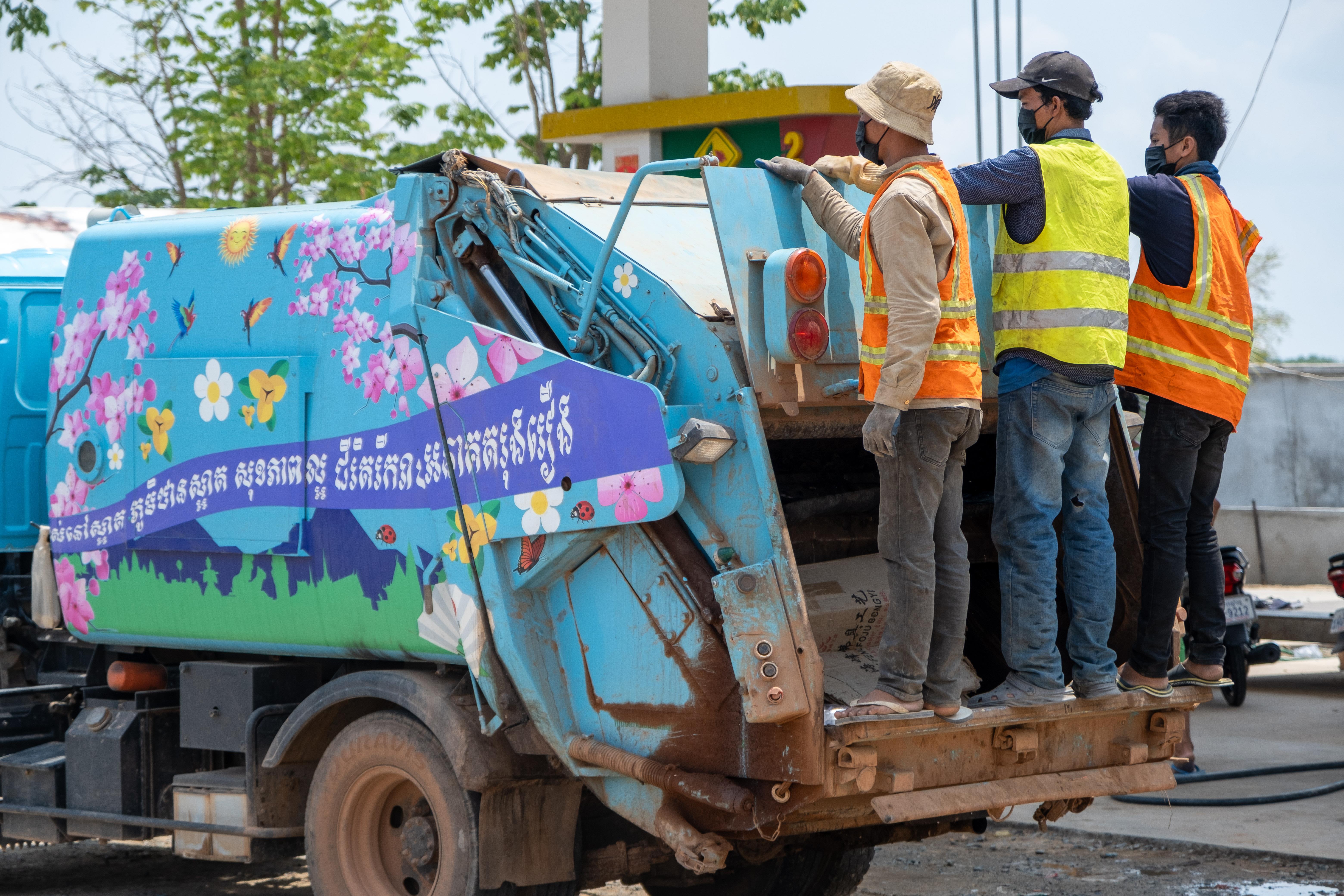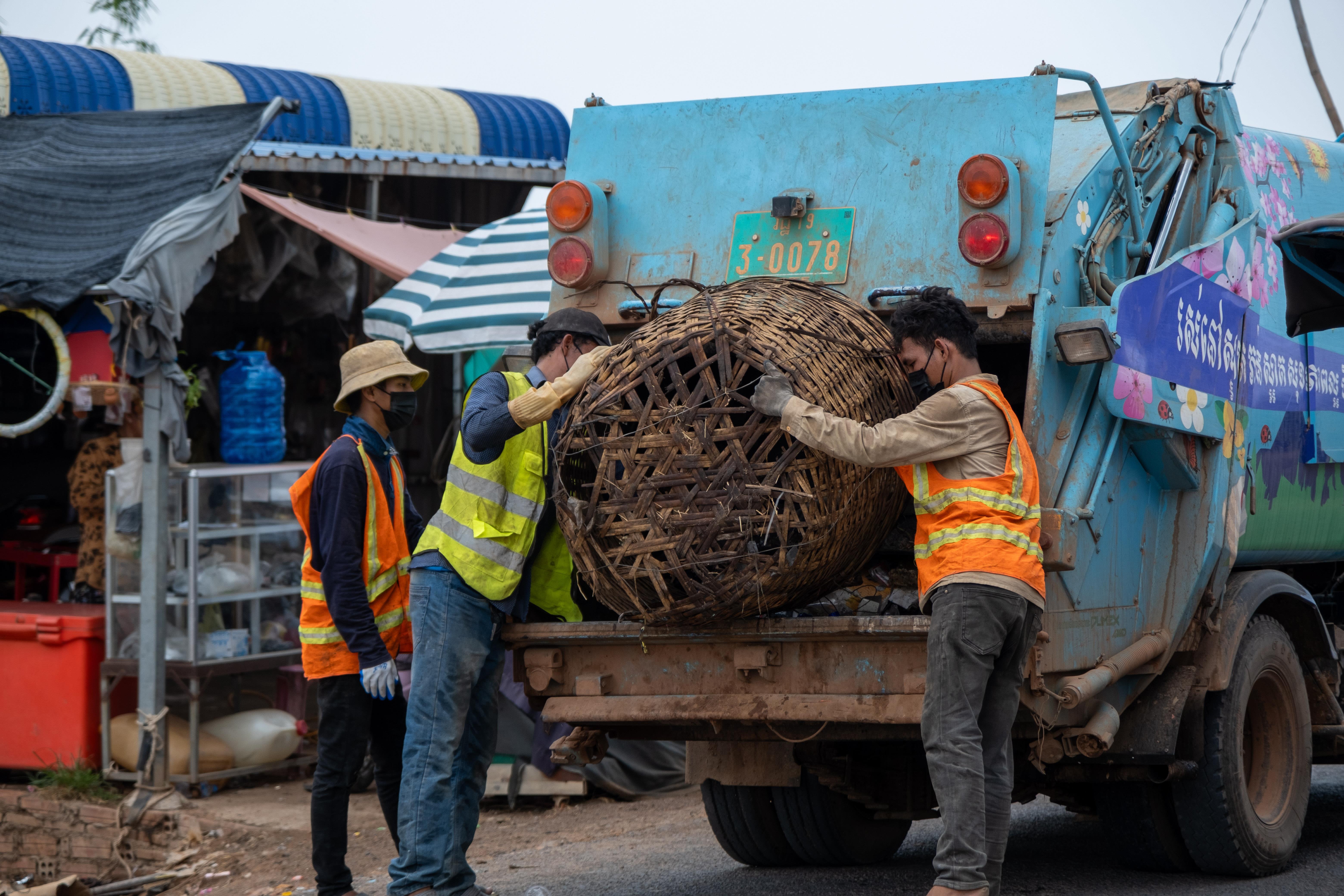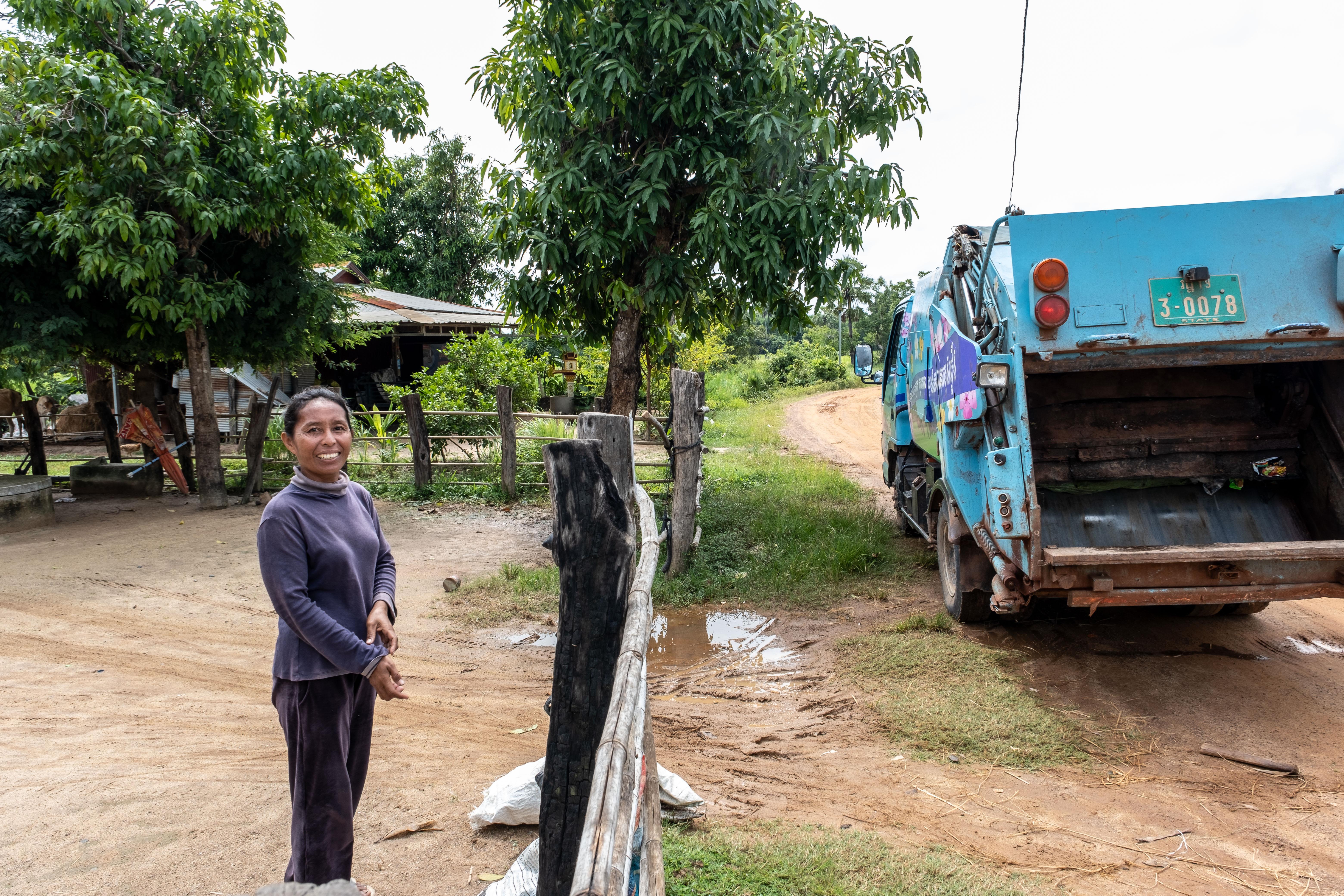Phnom Penh (FN), Apr. 7 – Residential waste collection services are now expanding into rural villages across the district of Boribour, Kampong Chhnang Province, which sits along the Tonle Sap Lake. In the first six months of iDE’s support through the Waste Management Market Acceleration (WaMA) project, Lam Samnang, the local waste collection service provider, has reached over 2,000 households with weekly waste collection services and his customer base has increased by over 400%.
This initiative prevents tons of waste from reaching the Tonle Sap Lake–a critical Cambodian ecosystem. The Tonle Sap Lake region, a UNESCO-designated Biosphere Reserve with major tourism potential, is home to over three million families and provides 60% of the country’s protein intake. However, its waterways are threatened as waste from surrounding communities is dumped and washed into the lake, compounding pollution and jeopardizing local resources.
Approximately 75% of Cambodia's population reside in rural areas, where residential waste collection services are largely absent. With only 4% of waste being recycled nationwide, rural households, businesses, and communities often defer to unsafe and unsustainable means for waste disposal, including burning, burying and open dumping. “To collect waste, clean the Tonle Sap, protect human health, and keep trash out of the natural environment, it is critical that solid waste management (SWM) expands in rural areas to meet growing and urgent needs,” said Tyler Kozole, Water, Sanitation and Hygiene Program Director, at iDE Cambodia.
A 2023 market study done by iDE revealed a significant percentage of households want waste collection services and are willing to pay for them. Some 69% of all households canvassed had cash on hand and were willing to pay 10,000 riel (USD 2.50) monthly for solid waste collection services.
Through its market-based approach, iDE and partners have empowered Samnang, local service provider, to be able to expand his waste collection service to rural villages. First, iDE collected key operational data to inform an expansion strategy that is both financially viable and operationally efficient. This includes customer mapping for route planning, collecting customer information for payment tracking, and other key data points to enhance service efficiency and long-term sustainability. iDE then engaged Samnang and his team to provide training and coaching to strengthen their capacity on topics including record-keeping, setting formal pickup schedules, creating customer lists, structured route planning, financial tracking and payment collection.
Kozole explained that, “To expand formalized waste collection services, it is critical to motivate households to pay for the service. So, we trained a team of sales agents to sell the service, educate and change household behaviour toward waste management. At the same time, service providers must establish trust through reliable service provision, transparent pricing structure, and efficient payment collection.”
iDE’s WaMA project, which is co-funded by the European Union, the Church of Jesus Christ of Latter Day Saints and iDE’s Paul Polak Innovation Fund, aims to extend waste collection services for 3,000 rural households in Kampong Chhnang’s Boribour District, with plans to scale to other provinces in the future. iDE is mobilizing resources and seeking support for sustainable solutions, including waste management, that improve health, livelihoods, and dignity for Cambodian families.
=FRESH NEWS
